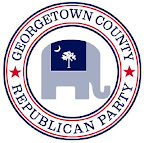Biden PAC Contributed To Some Who Endorsed Him
The Trail
Washington Post-Wednesday, October 3, 2007; A06
A QUESTION OF INTENT
Biden PAC Contributed To Some Who Endorsed Him
When Democratic Sen. Joe Biden traveled to Columbia, South Carolina yesterday to announce the latest in a string of endorsements he has received from state lawmakers in early primary and caucus states, two local lawmakers there declared themselves proud and loyal supporters of his presidential bid.
"He will be a great Commander-in-Chief," state Rep. Vida Miller told onlookers.
What was not said was that the two lawmakers endorsing Biden, Miller and state Rep. Jim Battle, had received $500 contributions earlier this year from the Unite Our States Political Action Committee, a leadership PAC Biden controls.
There is a pattern of similar exchanges between Biden's leadership PAC and the early-state political endorsements that dates to the weeks before he announced for president in January. At least nine state legislators in Iowa and South Carolina who have endorsed Biden have also received contributions from his leadership PAC.
Biden advisers said the leadership PAC contributions were not intended to help his presidential bid. "They were intended to support their local campaigns," said Larry Rasky, communications director for Biden for President
Biden's campaign spokeswoman, Marion Steinfels, said the senator used his leadership PAC for the purpose of spreading the word about his Iraq plan. "Sen. Biden has campaigned across the country, and has given to local candidates and state parties. Obviously he also spent a lot of time working with candidates, talking about the Iraq plan, working with folks running for congress."
It's not unusual for members of congress to distribute money to state legislators. And other politicians with presidential ambitions, most notably Mark Warner and John McCain, made extensive contributions from their leadership PACs to state legislative candidates in early states. The difference with Biden is that his contributions continued after he formally announced his bid for the White House.
Michael Toner, a former Federal Election Commission chairman who in 2003 wrote the regulation governing how politicians can use their leadership committees, said it is "very dangerous to be operating a leadership PAC while simultaneously running for president." Toner was formerly chief counsel of the Republican National Committee and now works for GOP presidential hopeful Fred Thompson.
"Leadership PACs cannot be used to underwrite campaign activities," Toner said. "If you have a pattern where the leadership PAC is making disbursements in early primary states, that's exactly the kind of fact pattern that could invite an FEC investigation. When you have spending from the leadership PAC in early primary states, that is a real red flag."
Don Simon, a campaign finance lawyer who serves as counsel to the group Democracy 21, said he could not speak specifically to Biden's activity, but added that generally the problem with using leadership PAC funds to assist a presidential bid is that it circumvents contribution limits. Someone could donate the maximum amount to both the leadership committee and to the campaign. As a result, if a leadership PAC spends money on behalf of a campaign, it is supposed to be treated as an in-kind contribution, he said.
The only potential concern then for Biden, would be that his leadership committee has doled out more than $10,000 to state legislators in 2007. The legal limit for an in-kind contribution is $5,000.
No one has suggested that the state politicians endorsed Biden because of the contribution. Iowa state Rep. Doris Kelley, the recipient of a $500 contribution from his PAC, told the Associated Press she opted to endorse Biden not out of obligation but because after sorting through all the candidates, he was her top choice. "If I chose to go with another candidate, I'm sure that there would be financial support there, but I truly believe that those decisions are based on each individuals' opinion of who will make the best president," she said.
Meredith McGehee, the policy director at the Campaign Legal Center in Washington, said that the perception that is created by leadership PACs is that they are "political slush funds" used to "buy favor." "When you see someone using a leadership PAC this way, where there is a financial reward for an endorsement, it makes the public roll their eyes," McGehee said. "The public cynicism is well earned."
--Matthew Mosk
